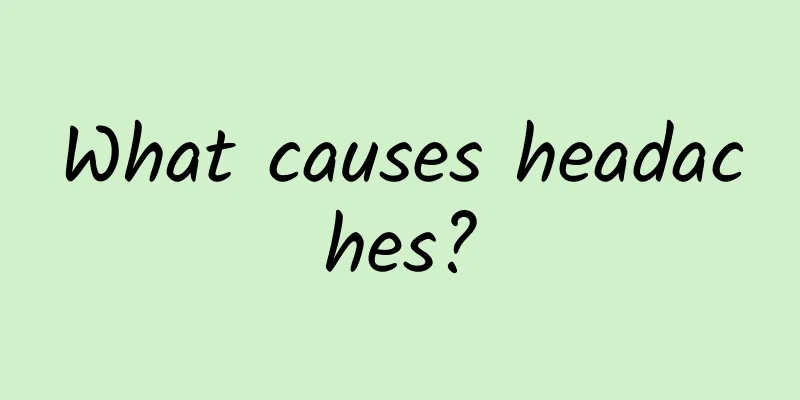Early symptoms of neonatal encephalitis

|
If a newborn is not cared for properly or for other reasons, it is easy to develop meningitis. The child's immunity is relatively poor, and this will have a great impact on the child's health. Generally speaking, viral meningitis has a relatively mild impact on the child, but bacterial meningitis can be very harmful and may even endanger the child's life. It often causes the child to have some typical symptoms such as high fever, headache, and stiff neck. Early symptoms of neonatal encephalitis Meningitis is an infection of the delicate membranes between the skull and brain called meninges. Children aged two to three months may develop neonatal meningitis, whether it is a bacterial or viral infection, which can easily be fatal for them. For older children, if the meningitis is caused by a virus, it is not as serious and does not last as long, about ten days or so. But those caused by bacteria can be very serious. High fever (40°C), stiff neck, severe headache, loss of appetite, confusion, vomiting, convulsions, fatigue, drowsiness, sensitivity to light, small blood spots on the skin, skin rash (especially in the armpits, hands and feet). These symptoms of meningitis are similar to those of a cold and are often the cause of misdiagnosis. Symptoms may change within one to two days, and some may become life-threatening within hours. In infants and newborns, high fever, headache, and stiff neck are not typical symptoms, and sometimes hypothermia may occur instead. The symptoms experienced by this group of patients include: high-pitched and continuous crying, unusual drowsiness, poor appetite, extreme sensitivity, and some having swollen fontanelles. In the elderly, the above symptoms may or may not appear, but they may show latent symptoms such as confusion and dullness. Severe bacterial meningitis may also cause symptoms such as shock, coma, or convulsions (similar to epilepsy).Meningitis vaccine Tuberculous meningitis is the most serious disease of tuberculosis in children. It is part of systemic tuberculosis and is caused by the tuberculosis bacteria entering the brain tissue through the blood circulation. The early symptoms of tuberculous meningitis are changes in the child's mental state, such as a previously quiet child becoming irritable and crybaby, or a previously lively child becoming mentally dull and not liking to play games. Other symptoms include low fever, loss of appetite, vomiting, restless sleep, and weight loss. Older children may complain of headaches. If the condition is serious, the child's headache will be persistent and worsen, vomiting will worsen and may become projectile, drowsiness will gradually appear, and convulsions may occur. After the convulsions stop, the child will be conscious. If the condition worsens further, coma, frequent convulsions, and muscle relaxation and paralysis of the limbs may occur. Breathing irregularities may also occur, and some patients may die. If tuberculous meningitis is not treated promptly or regularly, serious sequelae such as hydrocephalus, cerebral hemorrhage, limb paralysis, epilepsy, blindness, and mental retardation may occur. The most basic method to prevent tuberculous meningitis is to prevent children from being infected with tuberculosis. Children should be vaccinated with BCG right after birth, and revaccinated every 3 to 4 years, and avoid contact with tuberculosis patients. When children have recurrent low-grade fever and cough that is difficult to cure, they should go to the hospital for a chest X-ray. If it is confirmed to be pulmonary tuberculosis, it should be treated thoroughly to prevent it from spreading to the brain. If a child has a long-term low fever, a change in mental state, persistent headaches, and vomiting, he or she should go to the hospital to check the cerebrospinal fluid. If tuberculous meningitis is confirmed, thorough and regular treatment should be given to reduce the occurrence of sequelae. |
<<: What are the symptoms of forest encephalitis?
>>: What is the best medicine for encephalitis?
Recommend
7 major nutrients for the human body
Everyone knows that nutrition is indispensable fo...
What is the part of the back of the head called and why does white hair grow?
Everyone looks different, even twins have differe...
What are the effects of purple yam
Purple yam is a more common type of yam. Its nutr...
Do you need to avoid certain foods when you have urticaria?
There are many similarities and differences betwe...
How to treat female urethral stones? It may be better to start with personal diet
Although society is developing rapidly, more and ...
What to do with swollen calves
It is easy for female friends to experience calf ...
How to treat psoriasis
Psoriasis is really an annoying skin disease. If ...
How to reduce swelling quickly after tooth extraction
The health of teeth is related to people’s choice...
Is steaming good for acne?
Acne is a sign of puberty, so many people cannot ...
My eye bags suddenly became swollen
I believe that swollen eyes and swollen bags under...
What are the symptoms of chronic vaginitis?
The symptoms of chronic vaginitis are relatively ...
The reason why cancer cannot be cured is that treatment is the key
If you have cancer, you will feel desperate. Many...
Why is my period delayed and less?
You should be alert if your period is delayed or ...
What are the hazards of smog?
As the times develop and technology advances, our...
How many days can my period last?
From the first day of menstruation to the last da...









